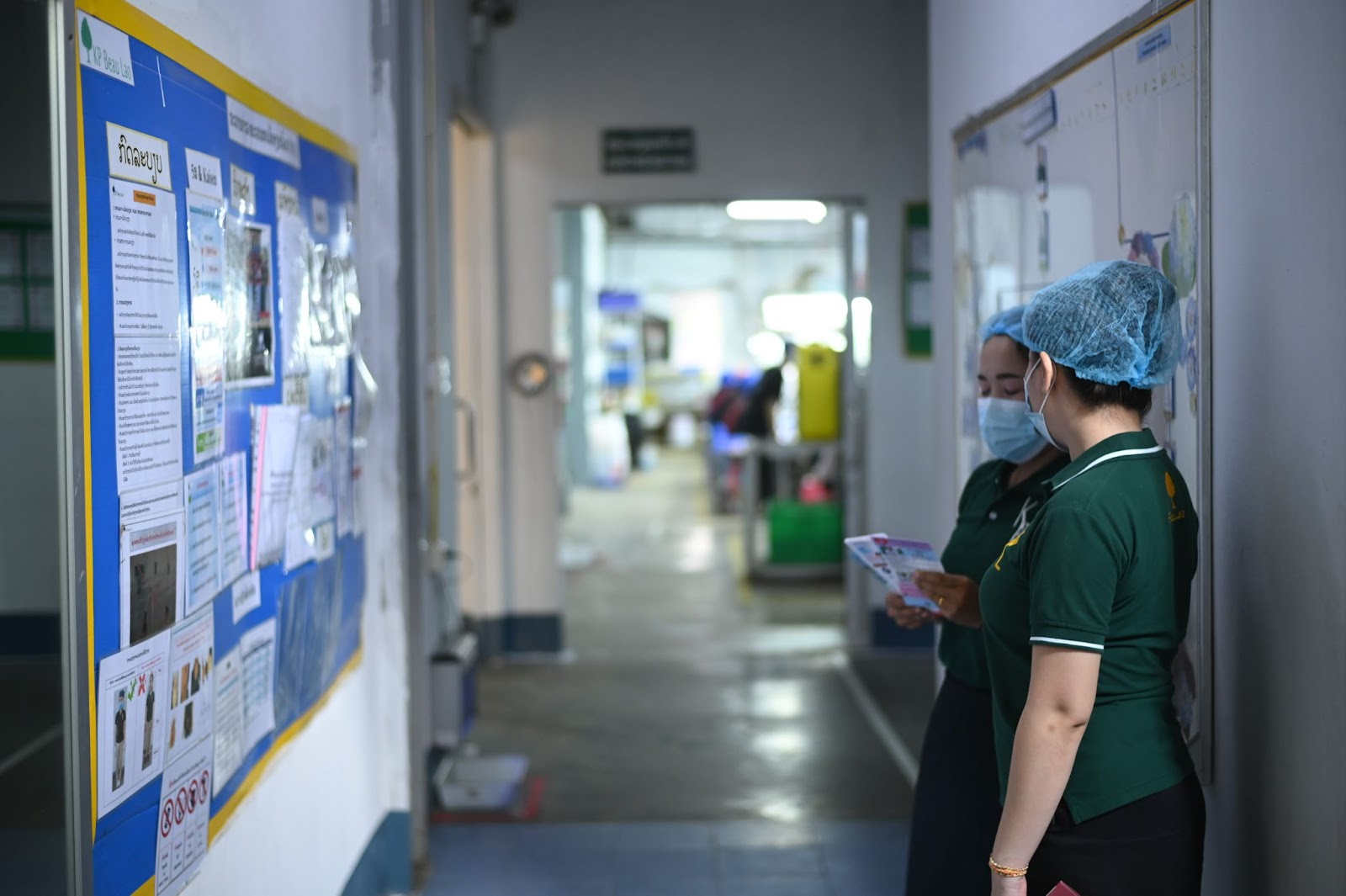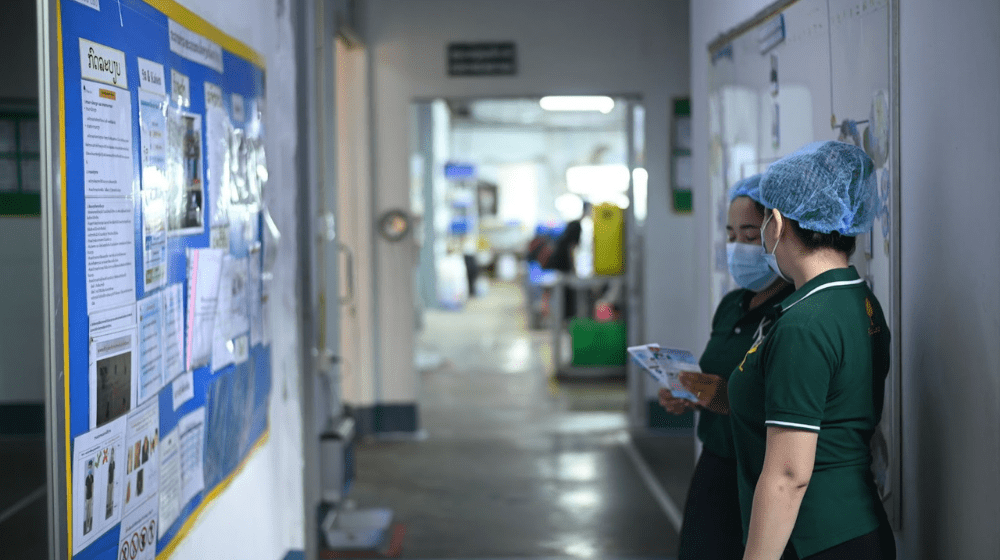In KP Beau Lao factory, situated in Savannakhet – the second largest province of Lao PDR, a special room has been established to ensure the wellbeing of young female and male workers. Through a partnership between UNFPA and the Ministry of Health, adolescent and youth-friendly services are provided in this counseling room. It provides a secure and discreet venue for medical staff from the local hospital to come and provide advice and care for young workers on reproductive health, Sexually Transmitted Infections (STIs), prevention of unplanned pregnancies, prevention of gender-based violence and other life and health challenges.
These types of workplace-based interventions that help increase private sector engagement to protect the rights and choices of employees are critical in a country such as Lao PDR, where the majority of workers are young, with over half of the country’s population aged 25 years and below.
Research shows that increasing investment in family planning commodities, including contraception, is cost-effective as spending US$1 on contraceptives can reduce subsequent reproductive health care costs by US$7. Globally, more companies are investing in workplace programmes to improve employees’ wellbeing, which in turn improves employee retention, quality of work and profitability.
To realize these benefits in Lao PDR, UNFPA is working with KP Beau and two other factories in Savannakhet (Lomakham Drinking water and Mitlao Sugar) and four garment factories in Vientiane Capital (Hi-tech Lao, Venture, Daewoo and B Cooperate), with plans to extend programme coverage to other factories employing large numbers of young workers.
Besides the special youth room for counseling, the programme established a training mechanism for peer educators. By investing in building a pool of young well informed peers at factories, the company allows employees to feel at ease to ask questions, seek help, request and benefit from a variety of essential services and care.
Tom is one of the trained peers at KP Beau Lao: “There are many young workers in our factory, but they are often shy to seek help when they have personal issues. Our role as trained peers is to provide advice on sexual health. I feel empowered to do it since I took part in the peers training. I acquired communication skills that helped me discuss and listen comfortably to the problems my colleagues are facing and respond to help them.”
Ms Mariam Khan, UNFPA Representative said: “evidence shows that when young people, women and couples have autonomy over their well-being and sexual reproductive health, they are healthier, empowered, and more productive. This in turn allows them to support others and improves their contributions at work, in communities and towards the country’s economic growth”.
“Before I became a volunteer, I was always curious about STIs. I didn’t have knowledge about them. Now, I am able to explain them confidently to my friends. At the factory, female colleagues visit me to consult about their sexual and reproductive health concerns. I am glad to contribute to the wellbeing of my colleagues and also my friends from the LGBTQI community working at the factory,” said Lang, a peer educator from the LGBTQI community, working at KP Beau Lao.
Thanks to the support from UNFPA Supplies, SDC and the Government of Luxembourg, UNFPA has successfully supported the establishment and expansion of this initiative with more than 4,500 young workers accessing SRH information and services at their workplaces. Some 81 peer educators were trained to provide SRH information and referrals to the existing facilities when needed.
The Government of Lao PDR is planning to expand the partnership with seven new companies within the special economic zone in Saysettha district as well as 10 factories in Vientiane capital to reach 15,000 additional young workers.

***
UNFPA, the U.N.'s sexual and reproductive health agency, works in over 150 countries, including Lao PDR, to achieve zero maternal deaths, zero unmet family planning needs and zero gender-based violence.
For more information, please contact:



